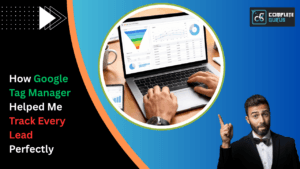When it comes to increasing your business’s online visibility, two primary strategies often come into play: Google Ads and Search Engine Optimization (SEO). Both methods have their unique benefits and can be highly effective when used correctly. Understanding the differences, advantages, and disadvantages of each can help you determine which is better suited for your business goals.
Understanding Google Ads
Google Ads, also known as Pay-Per-Click (PPC) advertising, allows businesses to display ads on Google’s search engine results pages. Advertisers bid on keywords, and their ads appear when users search for those terms. You pay only when someone clicks on your ad, hence the name PPC.
Pros of Google Ads:
- Immediate Results: Google Ads can drive traffic to your website almost instantly once your campaign is live.
- Targeted Advertising: You can target ads based on location, demographics, and user behavior, ensuring that your message reaches the right audience.
- Measurable ROI: Google Ads provide detailed analytics, allowing you to track clicks, impressions, and conversions, making it easier to measure the return on investment (ROI).
- Control Over Budget: You can set daily or monthly budgets, ensuring you don’t overspend.
Cons of Google Ads:
- Costly: Depending on your industry and keywords, PPC can be expensive, especially if you’re competing against larger companies.
- Short-term Impact: Once you stop paying for ads, your visibility disappears.
- Continuous Management: Successful campaigns require constant monitoring and adjustment to stay effective.
Understanding SEO
Search Engine Optimization (SEO) involves optimizing your website and content to rank higher in organic search results. Unlike Google Ads, SEO focuses on gaining free traffic through high search engine rankings.
Pros of SEO:
- Cost-Effective: Organic traffic is free, making SEO a cost-effective long-term strategy.
- Sustainable Results: High rankings achieved through SEO tend to be more stable and can provide ongoing traffic over time.
- Increased Credibility: Higher organic rankings can enhance your business’s credibility and trustworthiness.
- Better User Experience: SEO encourages better website structure and content, which can improve the user experience.
Cons of SEO:
- Time-Consuming: Achieving high rankings through SEO takes time and ongoing effort.
- Constant Updates: SEO requires staying up-to-date with search engine algorithm changes and adjusting strategies accordingly.
- Uncertain Results: There’s no guarantee that your efforts will result in higher rankings due to the competitive nature of SEO.
Which is Better for Your Business?
Choosing between Google Ads and SEO depends on your business goals, budget, and timeline.
When to Choose Google Ads:
- Immediate Traffic Needs: If you need quick results, Google Ads is the way to go.
- Product Launches or Promotions: For short-term campaigns and promotions, Google Ads can drive instant visibility.
- Precise Targeting: If your target audience is very specific, Google Ads’ advanced targeting options can be highly beneficial.
When to Choose SEO:
- Long-Term Growth: If you’re looking for sustainable growth and long-term visibility, investing in SEO is more beneficial.
- Limited Budget: For businesses with tight marketing budgets, SEO offers a cost-effective way to drive organic traffic.
- Building Authority: If your goal is to establish your brand as an authority in your industry, SEO can help build credibility over time.
Suggested reading : The Science Of Google Ads: Understanding Algorithms And Metrics
Combining Both Strategies
Many businesses find that a combination of both Google Ads and SEO yields the best results. By using Google Ads, you can generate immediate traffic and leads, while your SEO efforts build a strong foundation for long-term organic growth. This balanced approach ensures that you cover both short-term and long-term marketing goals.
In conclusion, neither Google Ads nor SEO is inherently better than the other. The best choice depends on your specific business needs, objectives, and resources. By understanding the strengths and weaknesses of each strategy, you can make an informed decision that aligns with your business goals.

I am Ashutosh – a seasoned digital marketer, bringing digital transformation to businesses, complementing businesses’ growth via generating qualified leads, drive site inbound traffic via organic and inorganic approach, & build their brands through useful, well-designed marketing strategies and Marketing Automation implementation via Chat GPT, HubSpot & Zoho.







